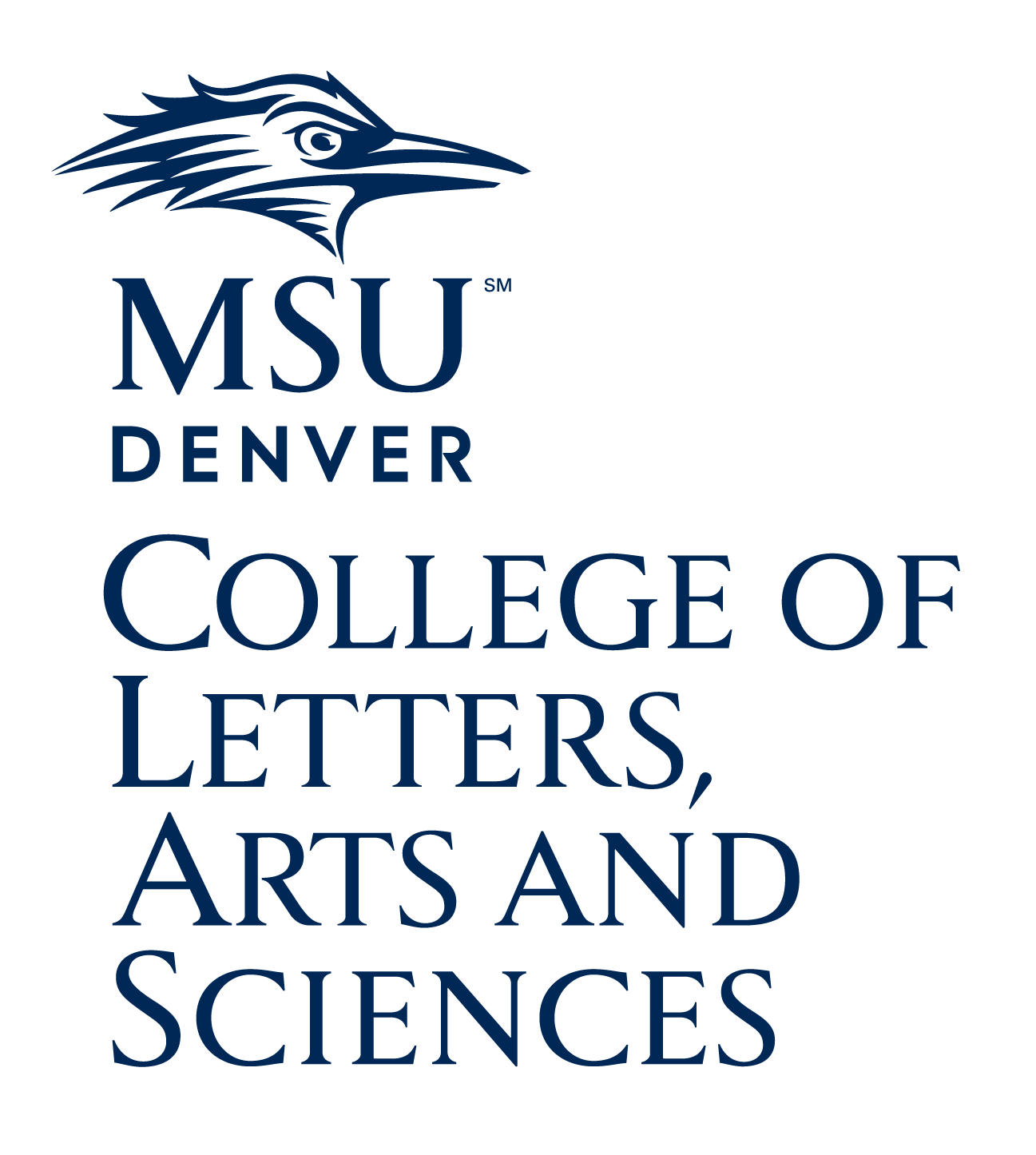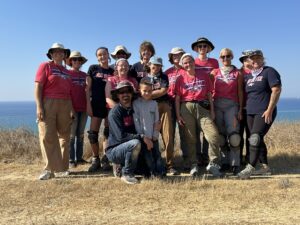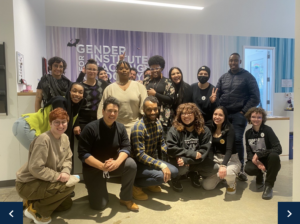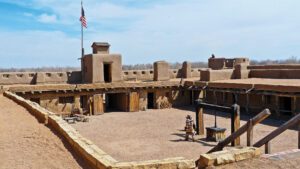Dean’s Innovation Fund Grants
Spring of 2022 saw the formalization of an Interdisciplinary Alliances structure, connecting programs and initiatives within CLAS. The Dean’s Innovation Grant funding provides financial support and incentives up to $5,000 for impactful interdisciplinary efforts in CLAS, either between faculty members and students, or faculty members themselves.
In alignment with our vision, mission, and principles, this work should involve a demonstration of intersectional qualities of humanity and learning; connection points across disciplinary practice; and exhibit the vital need for a broad, liberal arts and sciences education.
Projects supported by the Dean’s Innovation Fund may include, but are not limited to:
- Interdisciplinary research, scholarship, and creative work that raises the profile and reputation of the faculty member, department, and institution
- Interdisciplinary pedagogical initiatives, including robust co-teaching and team-teaching models, with special attention on introductory and general education courses
- Support for placing specific High Impact Practices within courses, with the express purpose of increasing retention and completion rates for our students
- Undergraduate student mentorship in areas of research, scholarship, creative work, and service learning resulting in impactful student experiences and outcomes
- Interdisciplinary efforts for grant submissions
Application and Impact Report Information
Proposals Due: January 31, 2024
Faculty should submit the application after consultation with any involved partners and their Department Chair. Submissions that are submitted on behalf of a faculty member will not be accepted.
The proposal will address:
- Description of project, including the scope of impact and the ways in which the interdisciplinary approach connects explicitly to student success, disciplinary advancement, and/or the enhancement of MSU Denver’s reputation. Limit: 1,000 words
- Proposed budget and justification, including any additional supporting funds (e.g. grants, scholarships, research materials, equipment, etc.). Limit: 250 words
- Expected or anticipated measurable outcomes. Limit: 150 words
Proposals will be ranked and recommended by the CLAS Professional Development Committee. The Dean will make final selection and funding decisions. Send complete proposals to Associate Dean Izurieta.
Final Report on Accomplishments and Impact Due: December 31, 2024
This will be filed with the Dean’s Office and include:
- Summary of your realized goals and outcomes of the project;
- Contribution to the Department, College, University and/or community;
- Plans for dissemination or showcasing work, either by faculty member or students involved (if applicable); and
- Copies of invoices, check requests, purchase orders to document your expenditures.
If you received a Dean’s Innovation Grant and would like to submit your Accomplishments and Impact Report
- Visit the CLAS Faculty and Staff Resources Internal page or
- Use this link to be taken to the form directly.
Innovation Grants Awardees
Dr. Christina Foust | Department of Communication Studies
Dialogue and Civic Engagement Week 2024 (DCEW’24)”
Dr. Nels Grevstad | Department of Mathematics and Statistics
The benefits of yoga for mental health and feeding interactions between wolves and corvid birds (ravens and magpies)
Dr. Jill Mollenhauer | Department of Art
Archival and Comparative Visual Research at the the American Museum of Natural History and the Metropolitan Museum of Art in New York City
Dr. Richard Sandoval | Department of Sociology and Anthropology
Chorti’ Project travel to Guatemala and Honduras
Dr. Jessica Weiss | Department of Art
Archival and Comparative Visual Research at the Metropolitan Museum of Art in New York City”
Dr. Arijana Barun | Department of Biology
Innovative and Inclusive Teaching Techniques in Biology
Dr. Robert Hancock | Department of Biology
The Mosquito Genus Sabethes and their Roles as Secondary Vectors of Diseases
Dr. April Hill | Department of Chemistry and Biochemistry and Dr. Alexis Bachik | Department of Psychological Sciences
Investigating Physiological and Psychological Effects of Cupping Massage
Matt Jenkins | Department of Art
International Artist Residency with the Arquetopia Foundation
Dr. Ting Jiang and Dr. Rebecca Forgash | Department of Sociology and Anthropology
Cultivating Asian Studies for Students at MSU Denver
Dr. Gabrielle Katz | Department of Earth and Atmospheric Sciences and Lincoln Davie | Department of Recreation, and Tourism Management
Creating a Student-Faculty Learning Community Involving Sustainable Outdoor Recreation and Tourism
Dr. Brandon R. Olson | Department of History and Dr. Justin Stephens | Department of Sociology and Anthropology
Faculty and Student Participation in the Plya-Koutsopetria Archaeological Project in Cyprus
Dr. Andrew Pantos | Department of English
Experiential Learning for Students: Assisting Faculty on a Textbook Involving the Structure of the English Language, Under Contract to be Published by Cognella Publishing
Kevin Rucker | Department of History
Internship Opportunities for MSU Denver Students at the National Park Service in Southern Colorado – Las Animas and La Junta
Dr. Anahi Russo | The Gender Institute for Teaching and Advocacy
Archiving the Gender Institute for Teaching Advocacy (GITA) Collection at the Auraria Library
Dr. Michala Stock and Dr. Todd Yokley | Department of Sociology and Anthropology
Faculty and Student Participation at the 2023 Annual Conference for the Rocky Mountain Biological Anthropology Association
Featured Dean's Innovation Grant Stories
Read the featured stories and highlights from our current and past College of Letters, Arts and Sciences (CLAS) Dean’s Innovation grant recipients.
Dean's Mini Grants
Prior to 2022, CLAS Dean’s mini-grants were provided to faculty to support their scholarly research, undergraduate research and teaching which strengthened faculty and student engagement and ultimately, improved our programs and offerings.
2021 Mini-Grant Stories
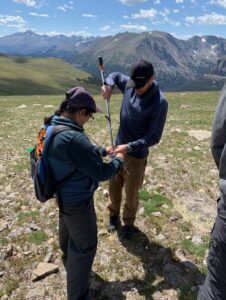 Carbon Storage in a Changing Climate is an ongoing project started in 2015 by Dr. Sarah Schliemann (Senior Lecturer of Environmental Science). The project is focused on the role alpine tundra soil plays in the global carbon cycle. Due to the tundra’s consistently low temperature, soil in the ecosystem has historically stored large amounts of carbon, in the form of organic matter. However, with a changing climate, this ecosystem may switch from a carbon sink to a carbon source and release greenhouse gasses to the atmosphere.
Carbon Storage in a Changing Climate is an ongoing project started in 2015 by Dr. Sarah Schliemann (Senior Lecturer of Environmental Science). The project is focused on the role alpine tundra soil plays in the global carbon cycle. Due to the tundra’s consistently low temperature, soil in the ecosystem has historically stored large amounts of carbon, in the form of organic matter. However, with a changing climate, this ecosystem may switch from a carbon sink to a carbon source and release greenhouse gasses to the atmosphere.
Over the last 8 years, the project has engaged over 50 students in field and lab work. In the spring of 2022, we used the CLAS mini-grant to assess the levels of nitrogen and phosphorus in the soil as these nutrients can influence the soil’s ability to retain carbon. This lab work engaged 3 MSU Denver undergraduate students, including Charis Glatthar who is the first blind student to major in Environmental Science. Charis’ work on the project was featured in an MSU Denver RED story in the spring of 2022. This project is currently finishing up and the team expects to publish one or more journal articles in 2023.
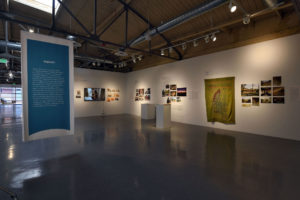 Supported in part by CLAS mini-grant funding, the Design for the Common Good International Exhibition was successfully hosted at MSU Denver’s Center for Visual Art from Jan 14 – Mar 19, 2022. Curated and organized by Professor Lisa M. Abendroth (Communication Design Program, Department of Art), the exhibition celebrates public interest design, a practice that champions diversity, equity, and inclusion through community-based approaches to the design of buildings, environments, products, and systems. The exhibition showcases 30 projects representing six continents and 22 countries. Projects were from curated from within the five international design organizations that comprise the Design for the Common Good Network (DCGN) and also includes a selection of regional solutions situated in and around the U.S. Rocky Mountain west. With hands-on student involvement in exhibition design plus its catalog, a total of three undergraduate courses contributed to exhibition deliverables during the Fall 2021 semester accounting for the active engagement of 32 students. An embodiment of the principles embedded in the exhibition theme, student participation in the process further illustrates how community-based actions can create positive impacts through inclusive approaches to design.
Supported in part by CLAS mini-grant funding, the Design for the Common Good International Exhibition was successfully hosted at MSU Denver’s Center for Visual Art from Jan 14 – Mar 19, 2022. Curated and organized by Professor Lisa M. Abendroth (Communication Design Program, Department of Art), the exhibition celebrates public interest design, a practice that champions diversity, equity, and inclusion through community-based approaches to the design of buildings, environments, products, and systems. The exhibition showcases 30 projects representing six continents and 22 countries. Projects were from curated from within the five international design organizations that comprise the Design for the Common Good Network (DCGN) and also includes a selection of regional solutions situated in and around the U.S. Rocky Mountain west. With hands-on student involvement in exhibition design plus its catalog, a total of three undergraduate courses contributed to exhibition deliverables during the Fall 2021 semester accounting for the active engagement of 32 students. An embodiment of the principles embedded in the exhibition theme, student participation in the process further illustrates how community-based actions can create positive impacts through inclusive approaches to design.
The exhibition continues via support from a National Endowment for the Arts, Grants for Arts Projects – Design grant that is supporting, in part, its ability to travel. The prospectus outlines the traveling exhibition opportunity as expressions of interest are being accepted to determine next destinations in 2023. Additionally, the work lives on in a digital archive presented on the DCGN exhibition website.
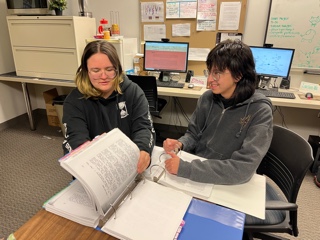 The Ch’orti’ Project is an ongoing language documentation effort at MSU, with high involvement from students. Our work is oriented toward developing scholarly and practical Ch’orti’ (Mayan) language materials, with the primary goal of supporting the language-revitalization needs of the Ch’orti’ community in Guatemala. Through building connections with community members and scholars, the project provides meaningful and impactful experiences for current and future students. The project was founded by director Dr. Robin Quizar (Emeritus Professor of Linguistics) in 2013 and is co-led by Dr. Rich Sandoval (Assistant Professor of Anthropology). It is run in collaboration with MSU Anthropology’s Ethnography Lab and lab director Dr. Rebecca Forgash (Professor of Anthropology), with additional collaboration and student support provided by Jill Scott (Laboratory Coordinator for Sociology and Anthropology). Starting in Fall 2021, our work has focused on a Ch’orti’ Project website. This has involved some students working on website building and design while others have worked on its Ch’orti’ language content. In Spring 2022, we used the CLAS Dean’s Mini-Grant Funds to host Yaxun B’alam, a Ch’orti’ speaker with technical linguistics training. Yaxun met with project members virtually each week to discuss linguistic analysis and provide insider perspective on Ch’orti’ content being prepared for the website. While the website is almost ready to go live, it will also be a work in progress for years to come. As such, we plan to invite Yaxun to continue collaborating with us on this initiative.
The Ch’orti’ Project is an ongoing language documentation effort at MSU, with high involvement from students. Our work is oriented toward developing scholarly and practical Ch’orti’ (Mayan) language materials, with the primary goal of supporting the language-revitalization needs of the Ch’orti’ community in Guatemala. Through building connections with community members and scholars, the project provides meaningful and impactful experiences for current and future students. The project was founded by director Dr. Robin Quizar (Emeritus Professor of Linguistics) in 2013 and is co-led by Dr. Rich Sandoval (Assistant Professor of Anthropology). It is run in collaboration with MSU Anthropology’s Ethnography Lab and lab director Dr. Rebecca Forgash (Professor of Anthropology), with additional collaboration and student support provided by Jill Scott (Laboratory Coordinator for Sociology and Anthropology). Starting in Fall 2021, our work has focused on a Ch’orti’ Project website. This has involved some students working on website building and design while others have worked on its Ch’orti’ language content. In Spring 2022, we used the CLAS Dean’s Mini-Grant Funds to host Yaxun B’alam, a Ch’orti’ speaker with technical linguistics training. Yaxun met with project members virtually each week to discuss linguistic analysis and provide insider perspective on Ch’orti’ content being prepared for the website. While the website is almost ready to go live, it will also be a work in progress for years to come. As such, we plan to invite Yaxun to continue collaborating with us on this initiative.
College of Letters, Arts and Sciences

Temporary Campus Location (March 16-August):
1041 9th Street Park
Mailing Address:
Campus Box 37
P. O. Box 173362
Denver, CO 80217-3362
Phone:
303-615-0600
Email:


